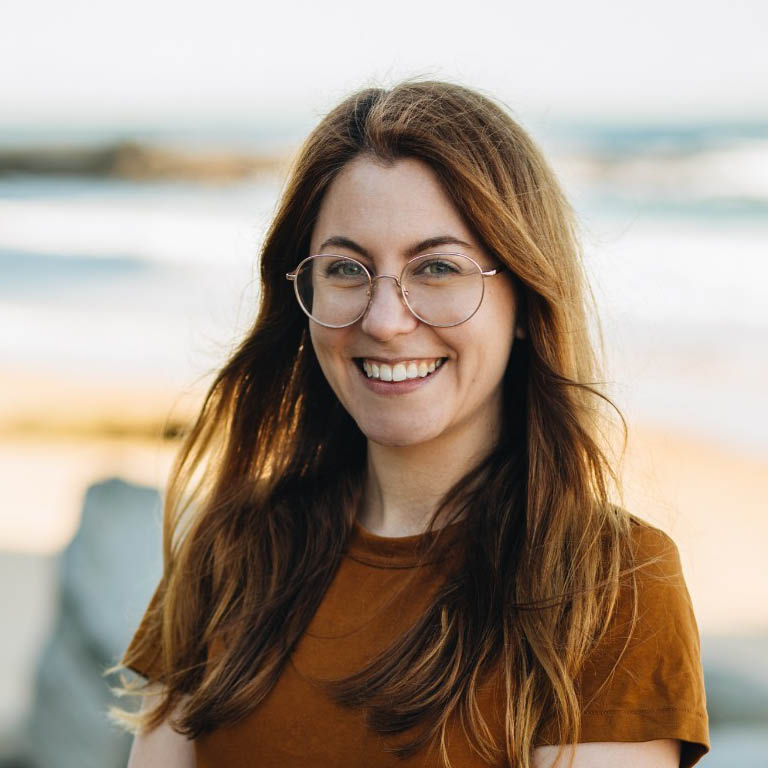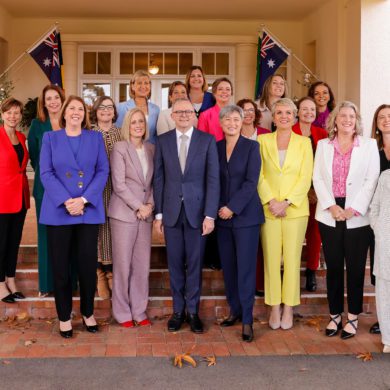When Lady-brains founders Anna Mackenzie and Caitlin Judd talked to the women who listened to their podcast, or attended their events, one particular issue kept coming up.
“They’d say, ‘I have an idea for a business but I don’t know how to write a business plan,’” says Mackenzie. “Anyone who’s ever downloaded one from a government website knows how cumbersome they can be. But this lack of a business plan prevented them from moving forward with their idea.”
So Mackenzie and Judd decided to follow an increasingly well-worn path for founders: they designed an online course. Base Camp, which launched last month, comprises 10 video-led modules that take wannabe founders through each stage of a business plan, from customer insights to finance and brand building.
Like a traditional course, Mackenzie and Judd are available to advise participants, who can also connect with a community of fellow students. Unlike a traditional course, Base Camp is self-paced and focussed on the practical elements of setting up a business.
“Our course bears no resemblance to what I learned in my commerce degree,” says Mackenzie. Adds Judd: “This is practical, actionable stuff that we use in our own business.”
Anyone who believes the adage ‘those who can’t do, teach’ clearly hasn’t flicked through TikTok recently – or any online platform.
In fact, in an age of hypersharing, there’s nothing that can’t be learned from a how-to by a skilled stranger. Want to build a tiny home from scratch? There’s a YouTube video for that. Salivating over South Korean Dalgona coffee? Make it yourself. Dying to dance like Lizzo? Go for it (although she might correct your moves…)
But for founders like Mackenzie and Judd, there’s a particular opportunity. Over the past few years, entrepreneurship has become aspirational and – despite reports of the death of the girl boss – the cult of the female founder remains strong. Combine that with our lockdown-fuelled enthusiasm for online learning and you can see the appeal of launching an online course, which can provide a lucrative income stream for content creators.
In fact, Australia’s online education industry is worth an estimated $8 billion, according to a recent IBISWorld report. While most of that revenue goes to larger providers, entrepreneurs can still enjoy a piece of the pie. Cherie Clonan, founder of social media management agency Digital Picnic says the release of her online learning stream in 2019 generated a quarter of a million dollars for her business. Mamamia founder Mia Freedman’s Lady Startups says it has welcomed over 5,000 ‘lady startups’ to its Activation course, which is currently priced at $567, meaning revenue could easily have run into the millions.
Learning from an established and well-known founder is an enormous drawcard for women just starting out on their entrepreneurial journey.
“For me, knowing who [Mia Freedman] was and what she’d done, made a big difference,” says Tilly Pamment, who undertook a Lady Startup course back in 2020 with a view to strengthening her online business, Tilly’s Table. “It wasn’t just a little online course from somebody I didn’t know. And it kind of feels like you’ve got a connection with [them].”
Freedman regularly uses her Instagram feed to showcase products produced by Lady Startup alumni (if you love sequin-drenched jackets and colourful earrings, this is the feed for you). But for Pamment, it was the course’s flexibility and practical advice that really made a difference.
“I was trying to set up my own business to be flexible to work around the kids,” says university-educated Pamment. “It was manageable in terms of time and money, and you could work at it in your own time.”
Courses offered by founders who have been-there-done-that in the business world tend to be shorter, more practical and vocationally-focused, unlike the traditional university and college streams. In these instances, experience is the credential.
“The number one question that I’m continually being asked by my community is how I’ve built my business,” says stationery brand Emma Kate Co. founder Emma Codrington. “Like, ‘Hey, can you give me advice? I want to manufacture in China, how do I do that?’”
For Codrington, who co-created The Hatchery business course with fellow businesswoman Gemma Pranita during the pandemic, extending her brand into education was a response to followers who wanted specific advice about business expansion. The course now represents around 10 per cent of her revenue.
Experience is the credential
While Judd and Mackenzie have only recently launched Base Camp, they already run a Brains Trust mentoring program and business workshop. Interestingly, they see their new course as a way of furthering Lady-brains’ transition into the education space.
“Obviously, we became known for the podcast, and the media side of the business became its driving force,” says Mackenzie. “But the podcast is a marketing channel for [business] education. We’re slowly starting to make the shift from media into education, because that’s where we feel we can have the most impact. We’re also exploring the opportunity to take this content into Australian high schools, teaching high school-aged girls the entrepreneurial skills, confidence and practical skills that will help them in the real world.”
To their credit, both Mackenzie and Judd are clear that their courses aren’t intended to replace a tertiary qualification, but rather offer a complementary skillset. That’s a valuable distinction for education experts such as Neil Selwyn, Professor of Education at Monash University.
“The tech sector has long been pushing [the idea] that we need nano-degrees or microcredentials,” Selwyn explains. “People don’t want to sit through 15 different units. The trouble is with that approach is you don’t know what you don’t know. You might think, ‘I can skip over the psychology of learning’ but that might be super important to understanding the bit that you do want to know.”
For his part, the rise in online learning is just another way to do what we’ve always done: educate ourselves. “People have always read books and taught themselves and learnt informally,” he says. “But digital tools have allowed a lot more people to be a provider, to be a teacher, to take a lead.”












No Comments